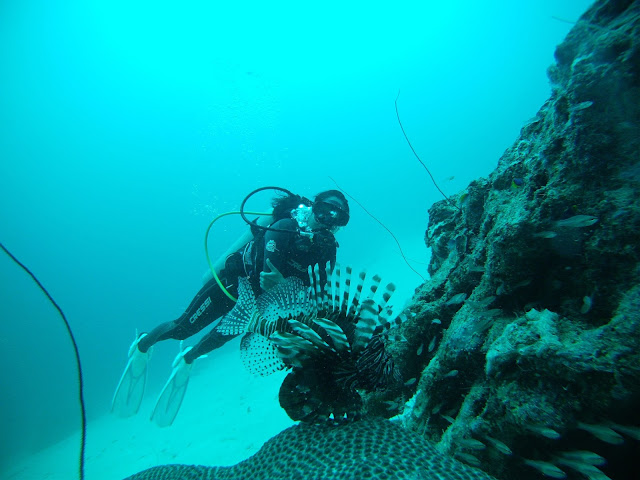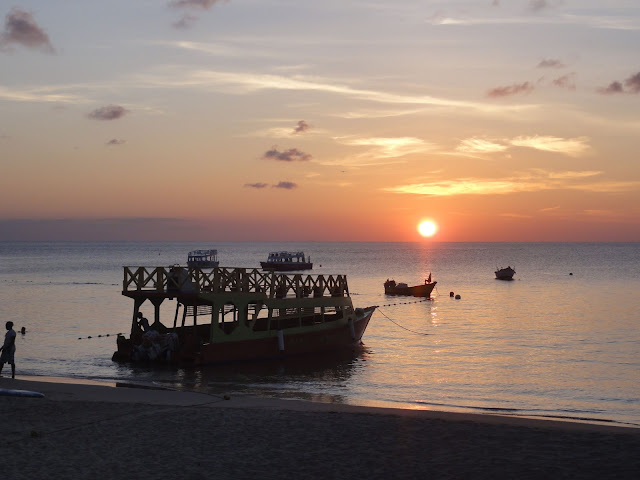Lionfish: the perfect invader?

Hunting the lionfish with Fadilah Ali Fadilah Ali is an ecologist with a specialty in invasive species biology, control and management. She has a Masters degree in Environmental Science with a focus on Biodiversity and Conservation and is currently completing her PhD in Ocean and Earth Sciences at the University of Southampton in England where she researched the lionfish invasion in the Southern Caribbean. As it glides past with its large, ornate, feathery pectoral fins, lionfish give the impression of a harmless beauty, simply floating by peacefully. Introduced to the Caribbean region more than two decades ago, lionfish have been deemed as one of the worst marine invasive species of all time, with potential to cause harm to local ecosystems, both ecologically and economically. Can you see the lionfish on reef? photo by Ron Tiah Native to the Indo-Pacific region, lionfish are a prime commodity within the aquarium trade ow...



